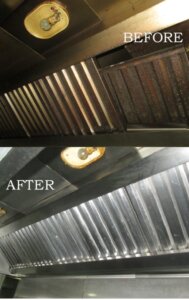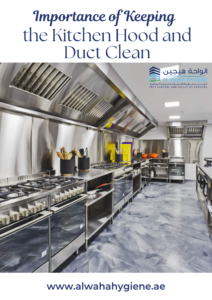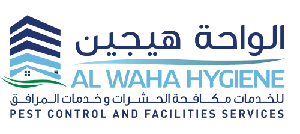Ensuring Fire Safety and Efficiency: The Importance of Clean Kitchen Hood and Duct Systems
'
 Maintaining and cleaning the kitchen hood and duct system is of utmost importance for bars and restaurants to effectively minimize fire risks in their commercial kitchens. Commercial kitchens typically operate heavy-duty cooking equipment for extended hours every day of the week. The hoods and ducts installed above the kitchen equipment are specifically designed to reduce the risk of fire by eliminating airborne contaminants like grease particles, heat, smoke, and odours. Neglecting proper maintenance of the Kitchen hood duct cleaning system significantly raises the likelihood of uncontrolled fires within the system.
Maintaining and cleaning the kitchen hood and duct system is of utmost importance for bars and restaurants to effectively minimize fire risks in their commercial kitchens. Commercial kitchens typically operate heavy-duty cooking equipment for extended hours every day of the week. The hoods and ducts installed above the kitchen equipment are specifically designed to reduce the risk of fire by eliminating airborne contaminants like grease particles, heat, smoke, and odours. Neglecting proper maintenance of the Kitchen hood duct cleaning system significantly raises the likelihood of uncontrolled fires within the system.
Importance of Keeping the Kitchen Hood and Duct Clean:
- Fire Hazards: Adequately designed and maintained hoods and ducts play a crucial role in eliminating airborne contaminants, such as grease particles, heat, smoke, and odours from the kitchen environment.
Without a hood and duct system in place, these contaminants would disperse throughout the kitchen and the entire building, leading to their accumulation on various surfaces like walls, ceilings, floors, tables, and chairs. This accumulation increases the potential fire load and the spread of fire if an incident occurs within the building. Moreover, the buildup of contaminants poses sanitation concerns and creates an unsightly and unappealing atmosphere for customers.
- Productivity and Efficiency: Restaurants typically strive to operate smoothly and efficiently. Unexpected interruptions or downtime can have a significant impact on the bottom line. Scheduling regular preventive maintenance and cleaning with a certified hood and duct cleaning contractor helps ensure uninterrupted operations and minimizes the need for emergency repairs.
Knowing When to Inspect and Clean the Hood and Duct Systems:

- Inspection Frequency: All kitchen hoods and ducts must undergo inspection by a certified hood and duct cleaning contractor at least every six months. If the inspection reveals the need for cleaning, the system must be cleaned by the same certified contractor. However, certain cooking operations may require more frequent inspections and cleanings.
- Solid Fuel Cooking: Commercial kitchens that utilize solid fuel, such as wood-fired grills or smokers, need to have separate hood and duct systems. These systems should undergo monthly inspections and cleaning due to the higher fire risk associated with solid fuel cooking, which generates substantial amounts of creosote and other airborne contaminants.
- High Volume Grease and Contaminants: Kitchens that produce larger quantities of grease and airborne contaminants should have their hood and duct systems inspected quarterly. If the quarterly inspection reveals the need for cleaning, the system must be promptly cleaned. This requirement often applies to cooking operations that involve extensive grease-based cooking or frying, or establishments that operate for long hours or 24/7, as the accumulation of grease and contaminants is accelerated in such cases.
After an inspection or cleaning, the certified Kitchen hood duct cleaning contractor should provide you with a certificate, which must be kept on the premises as a record. The certificate should include the name of the servicing company, the name of the individual who performed the work, and the date of the inspection or cleaning. Many contractors affix service certificates or stickers to the outside of the serviced hood and duct systems. If any areas of the system were inaccessible or not cleaned by the contractor, they should provide a written report detailing those areas.





